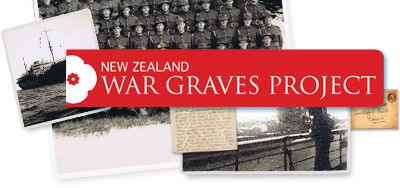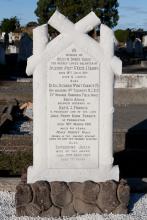Lieutenant-Colonel Frederick Francis was born in Essex, England, in 1856 and arrived in Lyttelton in the following year with his family. Parallel with his career first in the postal service in Christchurch and then with wine and spirits merchants, he he joined the City Guards volunteer force in 1874 as a private and rose through the ranks. His shooting skill was such that he won that company’s challenge belt seven times.
After service with the short-lived first Canterbury Battalion, he was appointed to command the newly formed North Canterbury Infantry Battalion as lieutenant-colonel. When the New Zealand Fourth Contingent sailed to the Anglo-South Africa (Boer) War from Dunedin on March 24, 1900 Colonel Francis was its commander. In South Africa he was promoted to Lieutenant-Colonel and appointed to command the 4th Regiment of the 2nd Brigade of the Rhodesian Field Force. The Fourth Regiment distinguished itself at Malmani Hill (Ottoshoop) in the Transvaal on August 16, 1900. The Boers had the advantage of a strong position on the hill which Colonel Francis was ordered to take and hold, but not to sacrifice his men too much. The New Zealanders occupied the hill for two days and nights without blankets and with very little food and water. Casualties included Captain Harvey and Trooper McDougall, both shot dead, and Captain Fulton who was badly wounded.
The New Zealanders’ victory was recognised in a brigade order:
“The officer-commanding the brigade desires to congratulate the brigade...Every position required by the Lieutenant-General Commanding was quickly taken without hesitation and held during the night. The advance to the attack was made with excellent precision and order. Lieutenant-Colonel Grey desires to thank specially the Fourth New Zealand Regiment, who bore the brunt of the attack, and he deeply deplores the loss of Captain Harvey. He has great pleasure in informing the brigade that the General Officer Commanding has expressed his entire satisfaction with its work.”
Harsh conditions on the hill worsened the fever and gastritis Colonel Francis had caught. Hospitalised with enteric fever [typhoid], he was invalided back to New Zealand. However, the fever recurred during a convalescent trip to England where his appointments included a fortnight’s stay at Sandringham at the invitation of the Prince of Wales. Back in New Zealand, after a further fever attack during a New Zealand Rifle Association meeting where he was a judge, Lieutenant-Colonel Francis died at his home in Christchurch on March 31, 1901, aged 44. [Source: The Cyclopedia of New Zealand]



